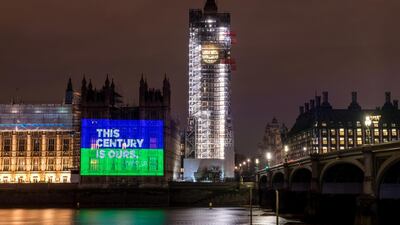Are you by any chance called James or John? If so, then you may have won the lottery of life.
The number of chief executives of US Fortune 500 companies called James exceeds the number of chief executives who are women.
And according to research for the New York Times, the number of top CEOs who are called John and the number who are women are roughly the same.
In Britain feminist campaigner Caroline Criado Perez estimates that the number of statues in public places in Britain of men called John exceeds that of all women put together.
If statues of Queen Victoria are discounted then only three per cent of public statues in Britain celebrate the achievements of women.
It does not take a mathematical genius to work out that half the population are not only significantly under-represented in business boardrooms and on public plinths but also in the UK Parliament and American Congress; indeed, anywhere power resides.
As the New York Times put it: "Fewer Republican senators are women than men named John - despite the fact that Johns represent 3.3 per cent of the population while women represent 50.8 per cent. Fewer Democratic governors are women than men named John. And fewer women directed the top-grossing 100 films last year than men named Michael and James combined."
At this point a (probably male) reader might argue that there are plenty of prominent and successful women in the world.
In Britain the head of state, Queen Elizabeth II, is, of course, a woman. So is the British Prime Minister Theresa May, German Chancellor Angela Merkel, the First Minister of Scotland Nicola Sturgeon and the former First Minister of Northern Ireland Arlene Foster.
Nevertheless, the facts of under-representation in positions of power speak for themselves.
Over the past couple of years, Ms Criado Perez hit the headlines in Britain with very successful campaigns to recognise women who have played an important role in Britain’s cultural life.
One was the novelist Jane Austen. Thanks to Ms Criado Perez, Austen now has her face on a British £10 note.
Another campaign celebrated Millicent Fawcett, who fought more than a century ago for women's right to vote. This right was finally extended to all British women over the age of 21 in 1928.
A couple of months ago, Fawcett’s statue was unveiled in Parliament Square, central London. She has become the first woman to be celebrated there, among male worthies including Winston Churchill, Nelson Mandela, Benjamin Disraeli, Mahatma Gandhi and Abraham Lincoln.
The statue bears one of her most famous phrases: “Courage calls to courage everywhere”.
There are encouraging signs for women in other countries too. Saudi Arabia has moved to allow women to drive and taken measures gradually to change elements of more conservative culture.
We should support the reforms and praise them when they happen because changing cultural traditions is one of the most difficult steps for any society to take.
In the US and western Europe, the MeToo movement has exposed the fact that sexual harassment of women by powerful men has been an abominable but common practice for years, especially in politics and the entertainment industries.
That culture is now, thankfully, changing too but it will be a long fight. A friend of mine, for example, is among a number of women trying to change the ethos of British universities to ensure the harassment she herself suffered years ago is not repeated for the female students of today.
But it’s not a positive picture everywhere. Every action seems to result in a strong reaction from some.
In Britain, women like Ms Criado Perez or female MPs who speak their minds are targeted for appalling abuse on social media.
One British Labour MP, Jo Cox, was murdered for campaigning against Brexit.
The Indian author Anuradha Roy spoke to me recently about her novels and her very disturbing fictional accounts of the way many women are treated in traditional Indian society.
Ms Roy was very forthright in praising the Indian economic miracle of the past few decades but equally outspoken in exposing violence against women and the way it is apparently tolerated by some Indian politicians and others in positions of power.
If the 19th century was the British century and the 20th was the American century, perhaps forecasts that the 21st will be the Chinese century might turn out to be true.
But given the changes of the past two decades, we might well come to think of the 21st century not in regional terms but as the century of women worldwide.
And before every James and John starts to complain about losing out, maybe we should reflect that loving our mothers, sisters and daughters is a wonderful thing but it’s not enough.
They need our respect and a fair chance at succeeding in the world too, according to their talents not their gender.


